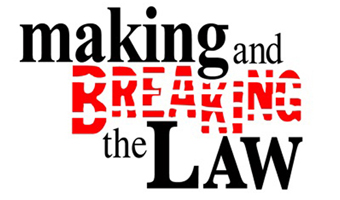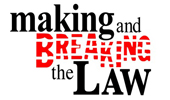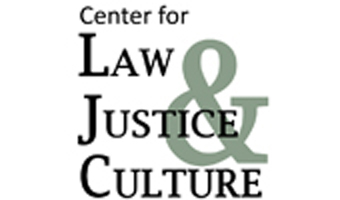The Center for Law, Justice & Culture invites faculty teaching courses relating to law and justice to consider adding their courses to the Making and Breaking the Law curricular theme.
The Making and Breaking the Law theme addresses major challenges of the 21st century, incorporates various disciplinary perspectives (social sciences, natural sciences, and humanities), provides thematic coherence to a cluster of General Education and Arts & Sciences distribution requirement courses, and includes innovative first-year and capstone courses.
The theme leads students at all levels to grapple with a series of questions about the meanings, complications, and possibilities of law and justice at a moment of intensified globalization, technological innovation, and political and economic inter-dependency.
The Making and Breaking the Law curriculum is designed to teach students to think critically about law and justice in relation to citizenship, global affairs, human rights, public health, and science and technology.
Key questions include:
- What is the role of law in contemporary human societies, and how did this role develop across history?
- How do states assert power and enact violence through law, and how are these enactments resisted, challenged, and overcome?
- What does justice mean in relation to citizenship, political dissent, and political discourse in the United States?
- In relation to international human rights regimes and post-conflict justice mechanisms?
- In relation to global disparities in access to health care and other basic human goods?
- How are our understandings of our own bodies, lives, and futures shaped by law?
- What are the limits of legal intervention in human life, and what happens when those limits are transgressed?
For a course to be considered, please submit the following information to the Making and Breaking the Law Curriculum Committee Chair Haley Duschinski at duschins@ohio.edu. Include:
- Name and department of faculty member submitting the application
- Course name and number
- Course catalog summary
- Course projected enrollment
- Course pre-requisites
- General Education distribution requirements and/or college distribution requirements fulfilled
- Last time offered and next time offered, with explanation if needed
- Brief statement of how the course addresses the key questions of the theme and how the course fits into the curricular sequence of the theme
- Any useful supporting materials such as course syllabus, if available
“We especially encourage faculty to consider adding existing experiential learning courses, including study abroad, domestic study, writing intensive, research-based, and project-based courses,” says Duschinski.
Faculty interested in submitting courses for consideration are welcome to discuss ideas with members of the curriculum committee (Haley Duschinski, Larry Hayman, Bruce Hoffman, Kathleen Sullivan, and Kevin Uhalde) prior to submission.



















Comments